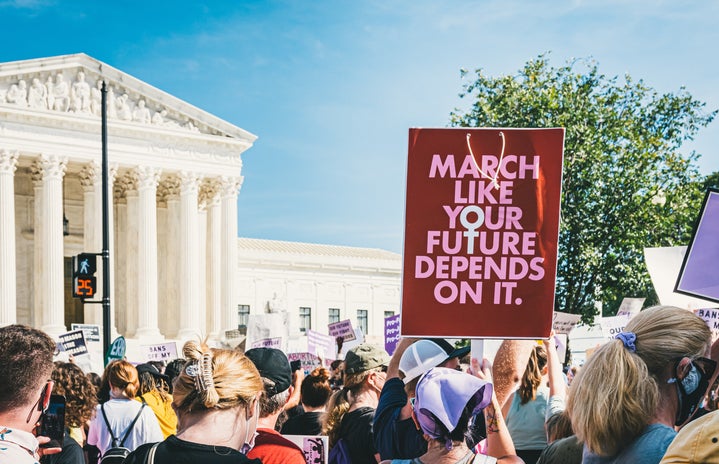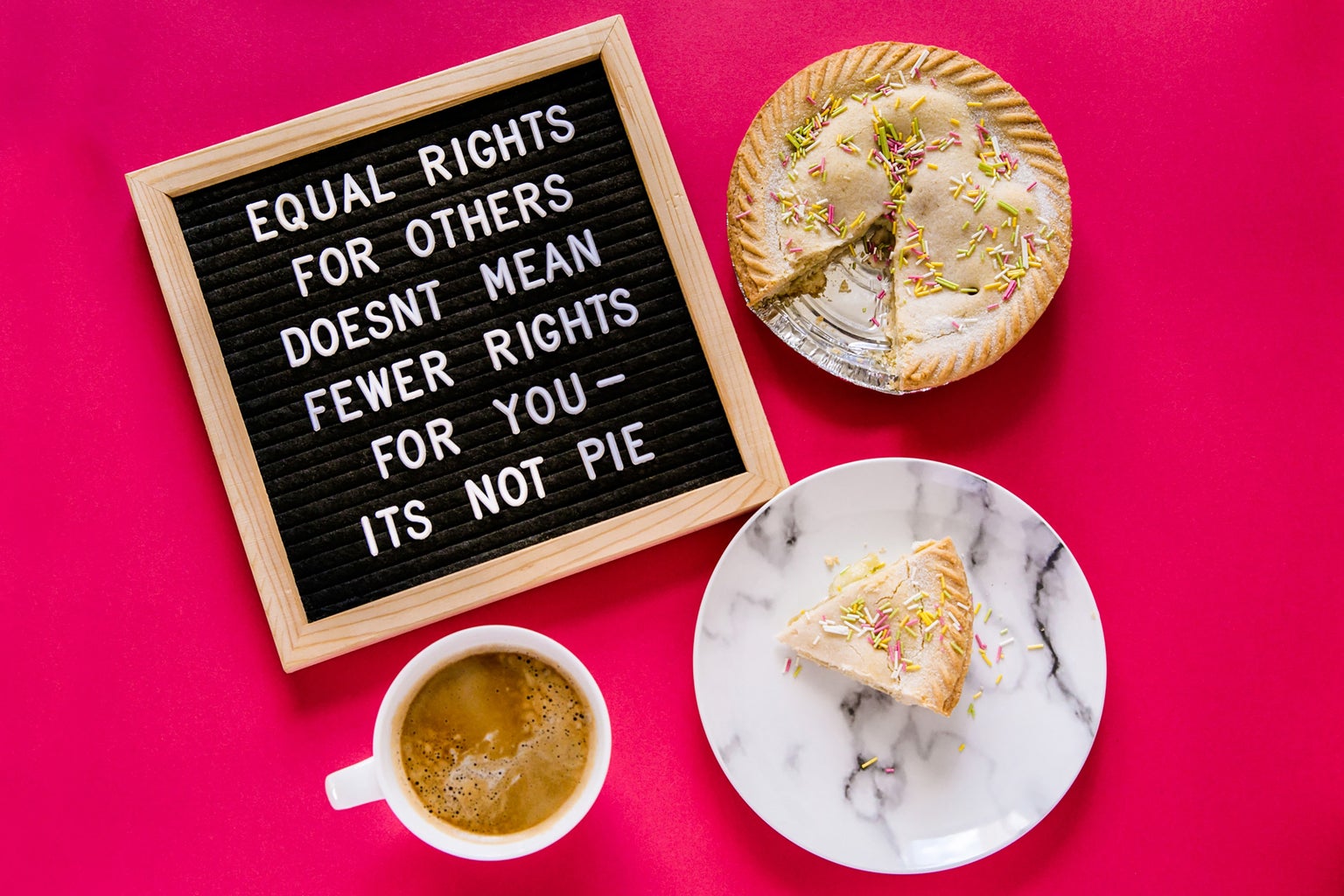Men are usually apprehensive when women say they are feminists, based on experiences on dating apps, when we say we’re raised by strong women or that we are feminists, we get reactions like “oh no”, prompting the not again notion of us explaining that feminism is not misandrist.
What is feminism?
In simple words, feminism is about equality across all genders. Which means: the same educational opportunities, job opportunities, chances of promotion, ending the wage gap, stopping the sexualisation of female bodies etc. The term feminism is not synonymous with a group of women who hold prejudices against men, but a social, political, and economic movement spearheaded by women for women — to advocate for the same treatment of the genders.
Formally taking its roots at the Seneca Falls Convention in 1848 when 300 men and women came together for the cause of equality for women, feminism has seen many denominations and ideologies. With every movement comes several flaws that sparked the re-evaluation of what the movement advocates, resulting in the 4 waves of feminism.
English writer, philosopher, and advocate for women’s rights Mary Wollstonecraft published Vindication of the Rights of Woman in 1972. First-wave feminists had a simple goal: for women to be recognised in society. The wave saw the inclusion of women in voting and highlighted reproductive rights. Taking place in the 1960s-70s, second-wave feminism drew notions from the first wave and challenged the woman’s role in society, focusing on institutions that limited the advancement of the female individual. A prominent victory in this era was the Equal Pay Act of 1963. Third-wave feminism, which was built on a foundation of existing and functioning rights thanks to the efforts of the previous waves, many feminists of the 1990s resisted social stereotypes. This period also saw the rise of intersectional feminism, which was more conscious of race and how oppression is linked to both gender and race. The #MeToo movement is what most people consider the fourth wave. Contemporary feminists also continue to reinforce that feminism is not just “white feminism” and should focus on the struggles of women of colour.
This crash course on the formation and transformation of feminism basically questions the social and political structures taking place in each era. It incorporates the view that men are prioritised in society, and that women do not receive the same opportunities to advance as compared to their male counterparts. The Glass Escalator is a suitable example to illustrate the gap.
“While women climb the ladder in female-dominated professions, their male peers glide past them on an invisible escalator, shooting straight to the top.”
Jenna Gordeau, Forbes Staff
The term “glass escalator” refers to how men in female-dominated jobs are noted to perform better than men in male-dominated jobs due to stereotypes of men possessing better leadership skills while women are expected to take time off due to reasons such as pregnancy or caring for ageing parents, putting the former at an advantage in the workplace.
Reactions to feminism
The term feminism has undoubted been demonitised as a derogatory term used to describe man-haters and salty women who had bad experiences with men. Young-men in South Korea in particular are rallying against feminism. In 2019, 29-year-old Moon Sung-ho started Dang Wang We, a group composed of young men who “fight for the justice of men”. Moon states that feminism was no longer about gender equality but an avenue for women to discriminate against men. A business student in the group denies the notion that women are at a disadvantage in today’s society and disregarded the MeToo movement while another notes that he sits apart from women in bars so that he wouldn’t be accused of sexual harassment. He was once a feminist but now believes that the movement focuses on female supremacy that is adamant about bringing down men.
What modern feminism has sparked is a conversation between both sides. We are not denying that women are at an advantage in custody battles, leniency for crimes committed, not having to go to the army, et cetera. Women do have certain privileges because of our gender, and that, when used selfishly, becomes a taint to striving for equality. There is also no denying that although the #MeToo movement has allowed women a platform to express their experiences of sexual assault and harassment, men have been falsely accused.
Feminism has been turned into a notion that is downright supremist and misandrist. Why are people threatened by feminism? Most people are exposed to feminism for the first time on social media, often involving a myriad of feminists who hold differing ideologies and opinions. Feminism has been re-defined every decade, most anger and hate surrounding feminism involve the idea that feminists blame all men as misogynists and abusers that use their privileges in society against the female body. Feminism, unfortunately, is no longer what is used to be, becoming a corrupt political notion for women to abuse the term to their advantage. Because of the misuse of the term, women are also questioning the term in its entirety.
Redefining feminism
Feminism was never about claiming that women are the superior gender, but striving for the objective woman’s voice to be heard in society. When feminists talk about issues relating to women, they are not disregarding the struggles that men face, but bringing into light the issues that are not addressed as openly because of their female input. Feminism is not about matriarchy and smashing the patriarchy but to have meaningful conversations and understanding one another from different standpoints.
The term feminism is not an all-encompassing term to describe man-haters and angry, begrudging women who were treated unfairly. The feminist ideology has gotten carried away since its inception, spawning confusion and disagreement among different groups of people. Feminism has a long way to go, but conversations need to be had to understand the term “feminist”. Ma Kyung-hee, a gender policy researcher found that men who are exposed to and learn about feminism online are more likely to be anti-feminist. Looking at posts on social media without attempting to interact intellectually with the post is not actively engaging with feminism. Feminism shouldn’t just be another f-word that people avoid. Men have every right to speak about feminism as much as women do, so have conversations, have disagreements, and seek to be objective and understanding of the term, regardless of whether you identify or don’t identify with it in the end.
Videos on YouTube on the debate between feminists and non-feminists
Debate between feminists and male rights advocates:
Feminism is changing…for the worse! Ted talk by Nina Gibson:




